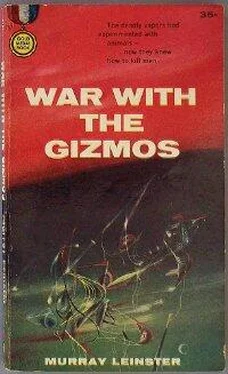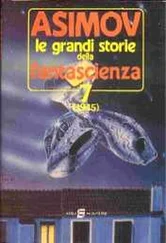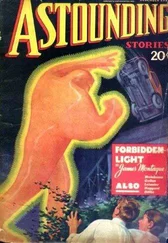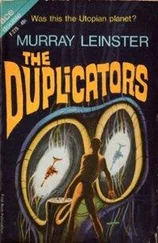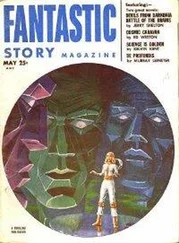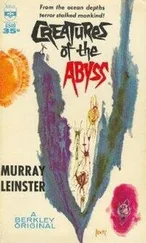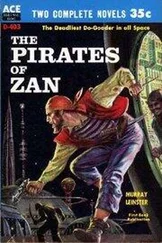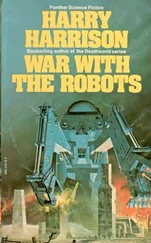Murray Leinster - War with the Gizmos
Здесь есть возможность читать онлайн «Murray Leinster - War with the Gizmos» весь текст электронной книги совершенно бесплатно (целиком полную версию без сокращений). В некоторых случаях можно слушать аудио, скачать через торрент в формате fb2 и присутствует краткое содержание. Год выпуска: 1958, Издательство: Fawcett Gold Medal, Жанр: Фантастика и фэнтези, на английском языке. Описание произведения, (предисловие) а так же отзывы посетителей доступны на портале библиотеки ЛибКат.
- Название:War with the Gizmos
- Автор:
- Издательство:Fawcett Gold Medal
- Жанр:
- Год:1958
- ISBN:нет данных
- Рейтинг книги:5 / 5. Голосов: 1
-
Избранное:Добавить в избранное
- Отзывы:
-
Ваша оценка:
- 100
- 1
- 2
- 3
- 4
- 5
War with the Gizmos: краткое содержание, описание и аннотация
Предлагаем к чтению аннотацию, описание, краткое содержание или предисловие (зависит от того, что написал сам автор книги «War with the Gizmos»). Если вы не нашли необходимую информацию о книге — напишите в комментариях, мы постараемся отыскать её.
War with the Gizmos — читать онлайн бесплатно полную книгу (весь текст) целиком
Ниже представлен текст книги, разбитый по страницам. Система сохранения места последней прочитанной страницы, позволяет с удобством читать онлайн бесплатно книгу «War with the Gizmos», без необходимости каждый раз заново искать на чём Вы остановились. Поставьте закладку, и сможете в любой момент перейти на страницу, на которой закончили чтение.
Интервал:
Закладка:
“You can go on, Dick,” she said drearily. “I convinced the doctor. He had a dozen frantic calls while I was in there—it seems as if I talked for ages—and he gave good advice to his patients about Gizmos. I couldn’t have bettered it, knowing what I know. It’ll do some good. I meant for him to check my results, but he believed me. He’s actually read some of my published papers. Quite a biologist. So he called the editor of a Roanoke paper whom he knows personally. He told the man who I was, and that what I said was true.”
Lane started the motor and drove out on the highway, heading north. He’d been on the go for something over thirty-six hours, without relaxation. There was a place called Monterey which would be a good stopping place for tonight. He estimated the distance. Perhaps an hour. Possibly more.
“What about the newspaper?” he asked the professor.
“I was interviewed,” said Professor Warren bitterly. “On the doctor’s telephone. Quite a clever young reporter! He got all my facts straight, but didn’t believe one, and then he asked to talk to the doctor again, and the doctor swore at him and said the story of a patient of his bore out what I said, and his experience of today convinced him I was right—about car wrecks, anyhow. The traffic deaths for today are over a thousand, Dick, and the total’s not nearly in yet! The reporter got the editor on the wire to the doctor again. My story’s preposterous. That it happens to be true doesn’t matter. It will be printed in tonight’s and tomorrow’s papers. The wire services will pick up some sort of garbled version of it. It will be printed as a freak. But, Dick—”
“What?” asked Lane. But he could almost guess.
“The headline,” said the professor bitterly, “will be, Spooks At War With Humans, Says Scientist.” Then she said more bitterly still: “I wish I could resign from the human race!”
But it was an entirely rational, scientific attitude to take, at that. The newspaper couldn’t be blamed.
Tonight, though, a new sort of evidence appeared to make it rational to look at Gizmos differently. The new evidence was indisputable. With what Lane and Professor Warren and Carol had to say, it probably determined the outcome of the war.
Chapter 10
The confusion in human affairs reached a new high during the night. Hot Springs, Va., was not the only town to shut its figurative gates. It did react early, because Hot Springs is a resort catering to visitors who arc heavy spenders. By quarantining the outer world, Hot Springs became apparently a safe place for them to do their spending. So long as that state of affairs lasted, everybody would be happy. But other communities shut themselves off from the world with the same firm resolution.
Some were mere villages. Most were relatively small towns. Cities could not barricade themselves against infection without starving. So municipal councils of sizable places met and disputed at length. They tried to compromise between the presumed need to keep out infection and the certain need to bring in food. Some of the compromises were peculiar.
Albany, New York, adopted emergency regulations which made it an offense for anybody to open a store or leave his own home. Reno, Nevada, passed a municipal ordinance which imposed splendid sanitary precautions on all its permanent residents, but excused all visitors from any quarantine measures whatsoever. Tucson, Arizona, established a three-man board with authority to do whatever was necessary to protect the public health. Athens, Georgia, forbade groups of more than three, except for the purpose of public worship.
On the other hand, the national government sanely put all laboratories manufacturing biologicals on twenty-four-hour standby readiness, so that they could begin to turn out immunizing shots as soon as the “virus” causing the trouble should be identified. Meanwhile it sent teams of investigators to beard the plague in its lair, so to speak, and at the risk of their lives gather specimens for examination. A good many of those investigators died. It is probable that some of them guessed at the actual nature of the death-causing agent before they died of suffocation. It is also rather likely that few of them believed it.
But one indisputable set of observations was made in Chicago, at the airports and the weather bureau and nearby air force radar stations. They were painstaking, official observations of arbitrary, unreasonable, preposterous facts that could not be explained. They were revealing, but it wasn’t possible to conclude anything from them for lack of the information that Lane and the professor and Carol were desperately trying to convey.
The first official observation was probably made at the main Chicago airport, some time after midnight. The field lights glared beneath a cloudless night sky. The curious shapes of radar scanners moved restlessly above their appropriate buildings. There was a distant droning in the air. A winking, alternately red-and-white light appeared against the heavens and drifted among the stars. The buildings of the airport were starkly lighted, with extraordinarily deep shadows where they were in darkness. Windows glowed. A visual beacon rotated sedately, sending its beam into the night. Headlights moved along the airport highways.
Off in the darkness twin landing lights appeared. Something which roared loudly came slanting downward behind those yellow, glaring eyes. When it touched ground the field lights showed a gigantic aluminum cigar with stubby wings. It roared and slowed, and then turned on the ground and came rolling clumsily toward the terminal.
Everything was normal everywhere. The sky-glare from the city was very bright above the horizon. Lamps glowed like earthbound stars along the roads. There was nothing unusual to see or hear—except on the radar screens.
Somebody looked at one of them, and stared blankly, and called other men, and they gaped at the screen and someone plunged to a telephone and frantically dialed the number of Civilian Air Defense. An instant later someone was calling the air force station, and a man went running down a corridor to tell what he’d seen in the dispatcher’s office. There was incredulity, dismay, bewilderment and apprehension everywhere. There were also outbursts of frantic fury. The radar screen reported a state of things which seemed either impossible or a realization of that emergency the Distant Early Warning radar system had been built to give warning of.
Radar said that something was moving toward Chicago, flying upwind across Lake Michigan. According to the radar, it was impossibly large and it moved with unlikely deliberation. Its speed was roughly thirty miles an hour. It had a shape—a bulbous head and a trailing, tenuous tail which frayed away to nothingness and reappeared without any discoverable organization in its parts. On the screens it actually looked like nothing on earth, but it would have been very like a crawling slug leaving bits of slime behind it which gathered together and followed while changing form and density. But it was flying—it was in mid-air. By its trailing tail it seemed to have moved over the lake from the most thinly inhabited parts of Wisconsin. But it headed upwind for Chicago.
Telephones hummed; short-waves flickered through darkness. A voice said authoritatively that it was a Gizmo, meaning a radar blip with no known cause except a belief that it was an area of extra-high ionization in the air. But it was the great-grandfather of all Gizmos. Its bulbous head was a good two miles in diameter, flattened to rise no higher than four thousand feet, and descending no lower than two. Its tail was ten—twenty—thirty miles in length, depending on the tenuity at which one ceased to measure it. It moved on a specific course. It would presently arrive at Chicago unless it sheered off. And there was nothing in the heavens or on earth or in the sea which should produce such an image on a radar-screen.
Читать дальшеИнтервал:
Закладка:
Похожие книги на «War with the Gizmos»
Представляем Вашему вниманию похожие книги на «War with the Gizmos» списком для выбора. Мы отобрали схожую по названию и смыслу литературу в надежде предоставить читателям больше вариантов отыскать новые, интересные, ещё непрочитанные произведения.
Обсуждение, отзывы о книге «War with the Gizmos» и просто собственные мнения читателей. Оставьте ваши комментарии, напишите, что Вы думаете о произведении, его смысле или главных героях. Укажите что конкретно понравилось, а что нет, и почему Вы так считаете.
